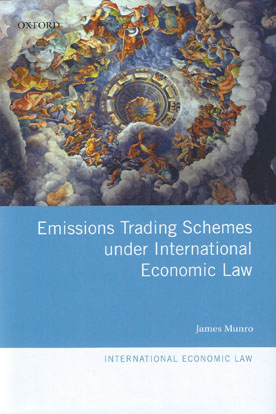
The announcement by China that it will implement a national emissions trading scheme confirms the status of this instrument as the pre-eminent policy choice for mitigating climate change.
China will join the dozens of existing and emerging schemes around the world - from the EU to California, South Korea to New Zealand - that use carbon units (otherwise known as emissions permits or carbon credits) to trade in greenhouse gas emissions in a multi-billion dollar global carbon market.
However, to date, there has been no consensus about this pre-eminent policy instrument being regulated by international economic law through the World Trade Organization, international investment agreements, and free trade agreements. Munro addresses this issue by evaluating whether carbon units qualify as 'goods', 'services', 'financial services', and 'investments' under international economic law and showing how international economic law applies to emissions trading scheme in diverse and unexpected ways.
Further, by engaging in a comparative assessment of schemes around the world, his book illustrates how and why all emissions trading schemes engage in various forms of violations of international economic law which would not, in most instances, be justified by environmental or other exceptions. In doing so, he demonstrates how such schemes can be designed or reformed in ways to ensure their future compliance.